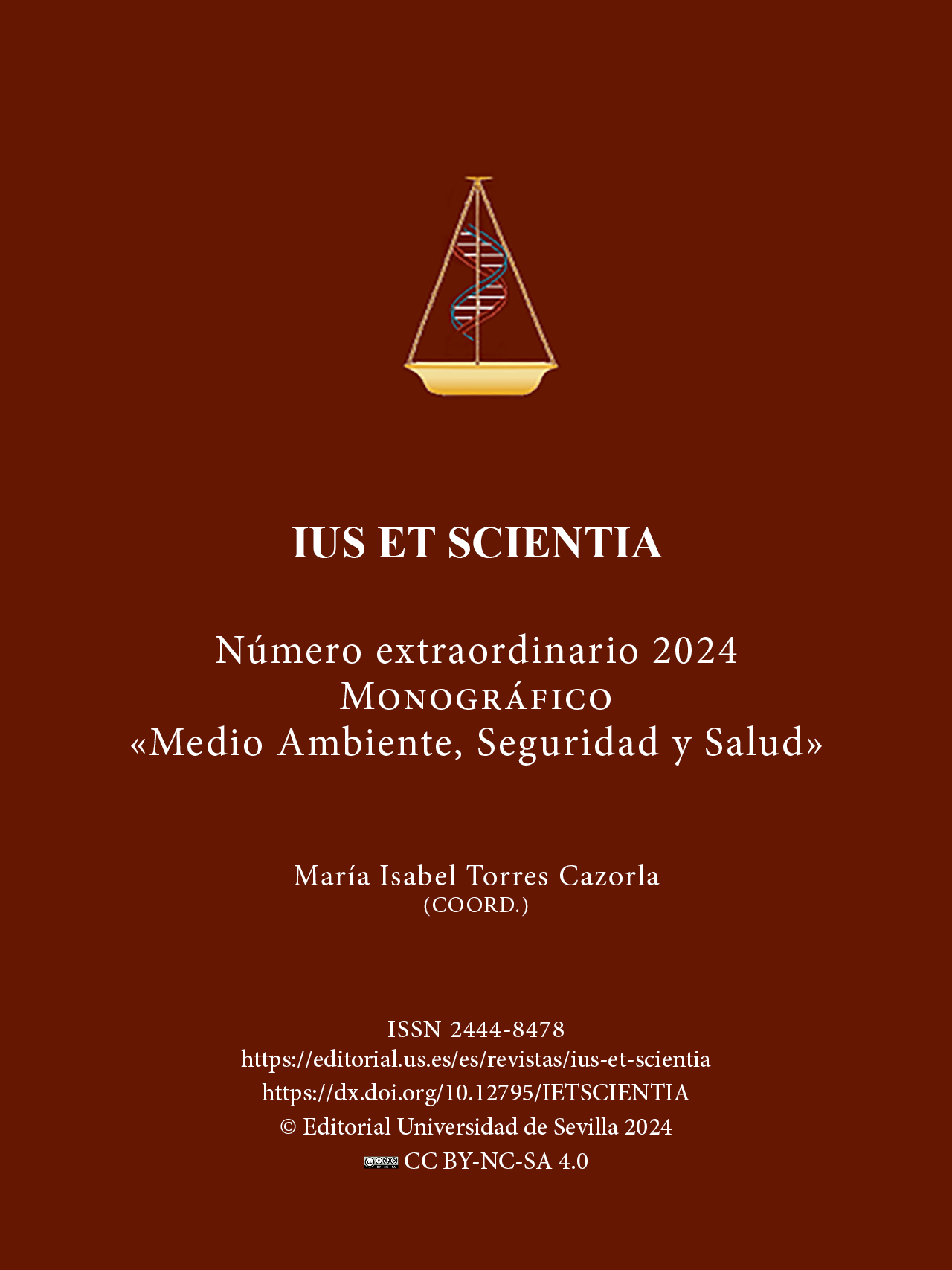Un análisis sobre las fuentes de la responsabilidad internacional de los Estados ante el cambio climático: ¿una norma consuetudinaria en formación?
DOI:
https://doi.org/10.12795/IESTSCIENTIA.2024.mon.09Keywords:
Climate change, International resposibility, Advisory jurisdiction, International Court of Justice, International law of climate change, International Human Rights Law, Customary normsAbstract
This paper addresses some questions that climate change raises for international law. It focuses in particular on the request for an advisory opinion submitted by the United Nations General Assembly to the International Court of Justice (ICJ) on 29 March 2023. This request is analysed as a further manifestation of the international community’s concern to clarify the international responsibility of states to prevent, mitigate and remedy the damage caused by climate change. The study argues that the ICJ could clarify obligations under existing treaties. There may also be a particular opportunity for the Court to expand its jurisprudence on other sources of international law. In particular, it asks whether the ICJ could confirm the emergence of a specific customary rule on the issue.
Downloads
References
AZNAR GÓMEZ, M.J. (2023), El Estado sin territorio: La desaparición del territorio debido al cambio climático. Revista Electrónica de Estudios Internacionales, 26, 1-23.
BODANSKY, D. (2023). The role and limits of the International Court of Justice in International Environmental Law. In C. Espósito, K. Parlett (eds.), The Cambridge Companion to the International Court of Justice (pp. 389-410). Cambridge University Press.
EVANS, M.D. (2014). International Law. Oxford University Press.
FAJARDO DEL CASTILLO, T. (2019). Avances y retrocesos en la negociación del Pacto Mundial por el Medio Ambiente. Actualidad Jurídica Ambiental, 95, 8-52.
FAJARDO DEL CASTILLO, T. (2018). El acuerdo de París sobre el cambio climático: sus aportaciones al desarrollo progresivo del Derecho internacional y las consecuencias de la retirada de los Estados Unidos. Revista Española de Derecho Internacional, 70, 1, 23-51.
FITZMAURICE, M. (2014). The International Court of Justice and International Environmental Law. In C.J. Tams, J. Sloan, James (eds.), The Development of International Law by the International Court of Justice (pp. 353-374). Oxford Academic.
GILES CARNERO, R. (2021). El régimen jurídico internacional en materia de cambio climático. Dinámica de avances y limitaciones. Thomson Reuters Aranzadi.
JIMÉNEZ PINEDA, E. (2023). Hacia una Opinión Consultiva sobre cambio climático: a propósito de la solicitud de dictamen de la Comisión de pequeños Estados insulares al Tribunal Internacional del Derecho del Mar. Revista Electrónica de Estudios Internacionales, 45, 1-23.
KANG, S., HAVERCROFT, J., EISLER, J., WIENER, A., SHAW, J. (2023). Climate change and the challenge to liberalism. Global Constitutionalism, 12, 1, 1-10.
MAYER, B. (2021). Climate change mitigation as an obligation under human rights treaties? American Journal of International Law, 115, 3, 409-451.
MAYER, B. (2016). The relevance of the no-harm principle to climate change law and politics. Asia Pacific Journal of Environmental Law, 19, 79-104.
MCMENAMIN, R. (2023). Advisory Opinion on obligations of States in respect of climate change: Potential contribution of Human Rights Bodies. Climate Law, 13, 3-4, 213-223.
VON BASSEWITZ, N. (2013). International climate change policy: Where do we stand?. In O.C. Ruppel, C. Roschmann, K. Ruppel-Schlichting (eds.), Climate Change: International Law and Global Governance, (pp. 101-169). Nomos.
ZHANG, Y., CHAO, Q., ZHENG, Q., HUANG, L. (2017). The withdrawal of the U.S. from the Paris Agreement and its impact on global climate change governance. Advances in Climate Change Research, 8, 213-219.
Published
How to Cite
Issue
Section
License
Copyright (c) 2024 Gustavo de la Orden Bosch

This work is licensed under a Creative Commons Attribution-NonCommercial-ShareAlike 4.0 International License.
Those authors being published in this journal agree to the following terms:
- Authors retain their copyright and they will guarantee to the journal the right of first publication of their work, which will be simultaneously subject to license recognition by Creative Commons that allows others to share such work provided it is stated the author’s name and his first publishing in IUS ET SCIENTIA.
- Authors may take other non-exclusive distribution license agreements version of the published work (e.g. deposit in an institutional digital file or publish it in a monographic volume) provided it is stated the initial publication in this journal.
- It is allowed and encouraged that Author s disseminate their work via the Internet (e. g. institutional digital files or on their website) prior to and during the submission process, which can lead to interesting exchanges and to increase citation of the published work.
- Abstract 51
- PDF (Español (España)) 26
- HTML (Español (España)) 15





